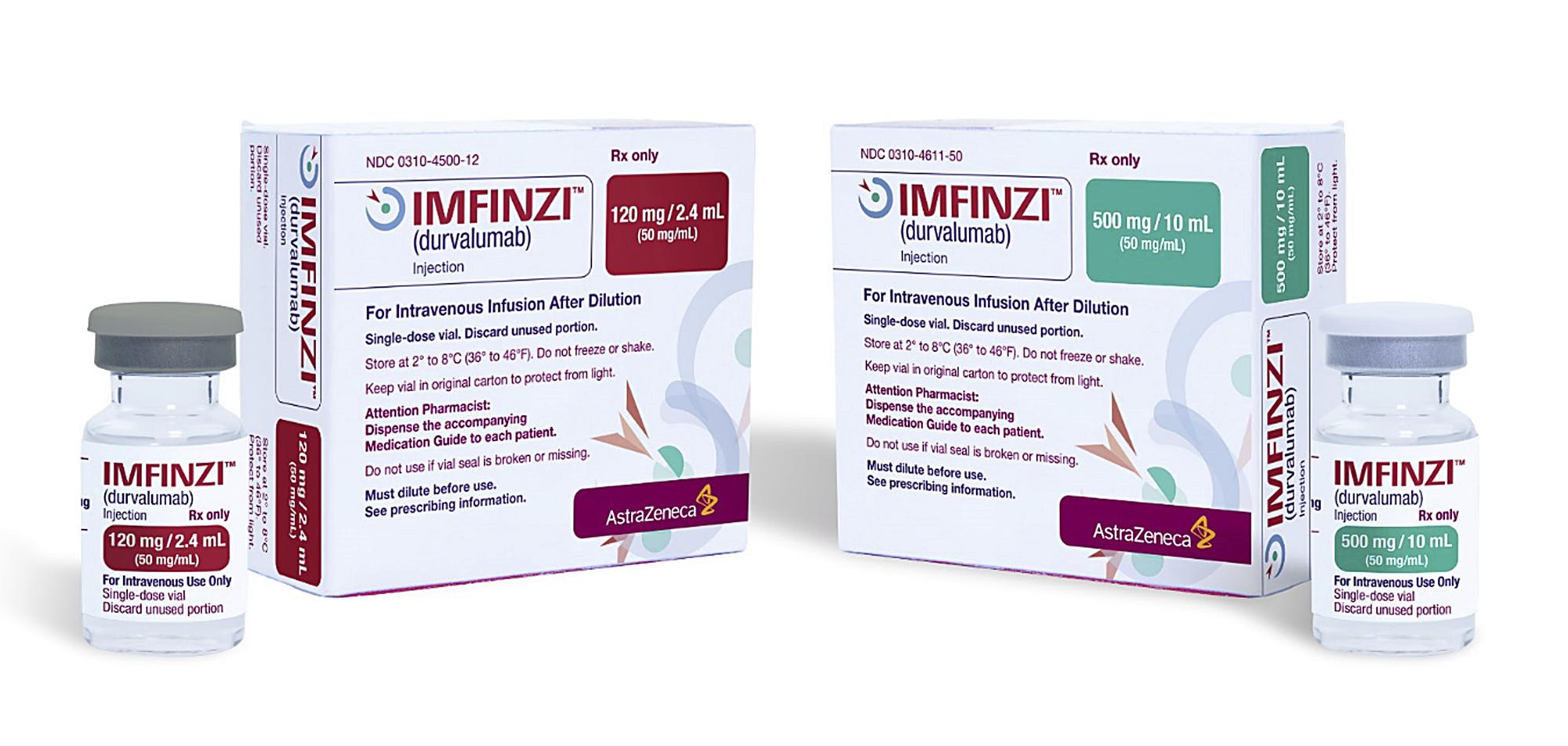Finally, AZ claims a win with Imfinzi/tremelimumab cancer combo

AstraZeneca’s development of checkpoint inhibitor combination Imfinzi and tremelimumab has chalked up serial trial failures in the last few years, but it finally has a positive result in lung cancer.
In the POSEIDON trial, triple therapy with PD-L1 inhibitor Imfinzi (durvalumab), CTLA4 inhibitor tremelimumab and a choice of chemotherapy reduce the risk of death or worsening disease in previously-untreated, metastatic non-small cell lung cancer (NSCLC) compared to chemo alone.
Imfinzi plus chemo alone also outperformed chemo alone on that progression-free survival (PFS) endpoint, plus as an added bonus AZ’s drugs were effective in both squamous and non-squamous forms of NSCLC, and didn’t add significantly to the side-effect burden of the cancer-cell killing regimens.
All that adds up to what looks like AZ’s biggest chance to date of displacing Merck & Co/MSD’s PD-1 inhibitor Keytruda (pembrolizumab) from its dominant position in first-line NSCLC, currently the biggest market for cancer immunotherapies.
“The potential to add tremelimumab to Imfinzi and chemotherapy may present an important treatment approach in this challenging setting, especially taking into consideration the favourable safety profile,” said AZ’s head of oncology R&D José Baselga.
AZ hasn’t revealed the detail of the data yet, and will need another win when overall survival (OS) data are reported next year – likely both for Imfinzi plus chemo and the triple regimen – if it is to challenge Keytruda’s entrenched position in newly-diagnosed NSCLC, particularly alongside chemo where it has shown stellar efficacy in improving survival.
Imfinzi and tremelimumab will also have to contend with Bristol-Myers Squibb’s combination of PD-1 inhibitor Opdivo (nivolumab), low-dose CTLA4 inhibitor Yervoy (ipilimumab) and chemotherapy, which reported positive PFS and OS results in the CheckMate-9LA trial last week.
An earlier trial of Opdivo and Yervoy in first-line NSCLC failed because of side-effect problems linked to the CTLA4 inhibitor, so AZ may have a competitive advantage if tremelimumab proves to be more tolerable.
Shares in AZ edged higher on the announcement while Merck dipped a little, although analysts mostly had a guarded response to the new data, suggesting it is still too early to gauge whether AZ or BMS have much chance of capturing a slice of the first-line NSCLC market.
In particular, there is scepticism as to whether oncologists will want to choose a three-drug regimen which might increase side effects over Keytruda plus chemo.
Nevertheless, POSEIDON is still a big step forward for AZ, as Imfinzi/tremelimumab failed miserably in the MYSTIC trial in previously-untreated NSCLC reported in 2017.
The combination also failed to improve survival in the NEPTUNE study reported in August, which focused on patients with a high tumour mutation burden (TMB).












